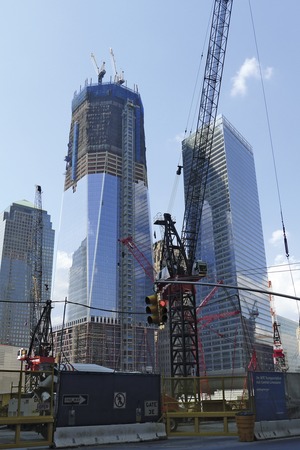
A crane's age is not an indicator of its physical fitness, according to a new study by Dallas-based forensic firm Haag Engineering. The results fly in the face of laws in Singapore and pending legislation in New York City, as other cities contemplate forcing crane owners to upgrade aging fleets.
"Bottom line, there is absolutely no correlation between age and accidents," said Jim Wiethorn, chairman and principal at Haag, who spoke at the Specialized Carriers & Rigging Association's annual meeting, held on April 22-26 in Boca Raton, Fla.
The lead author of the study, "Crane Accidents: A Study of Causes and Trends To Create a Safer Work Environment," added that his firm reviewed more than 500 crane accidents, from 1983 to 2013. In June, Haag will sell the full study, which details accident causes, for $249.
Regulators have argued that aging crane fleets pose higher risks to the public.
"As building in New York City continues to accelerate, we must encourage crane manufacturers to supply the construction industry with modernized equipment," said former Mayor Michael Bloomberg last December, when proposing the city ordinance, which is still pending.
Proponents frequently cite Singapore, which requires contractors to retire machines when they reach a certain age. Depending on the crane's capacity, the provision kicks in between 20 and 30 years of service. An extension can be granted if an inspection demonstrates the crane is safe to operate. Jurisdictions in the U.S. and Canada have considered similar measures.
Health and safety officials in Singapore have said the laws emerged out of accidents in the region that resulted from "fatigue stresses as a result of prolonged years of service," according to the country's Ministry of Manpower. However, Wiethorn contended Singapore's age laws are more focused on protecting against foreign competition than public safety.
Importance of Maintenance
Crane experts at last month's meeting viewed such laws as reactionary, often masking other problems—for example, poorly maintained machinery.
"Time does not weather a crane; maintenance and application do," said Zack Parnell, COO and vice president of Woodland, Wash.-based Industrial Training International. "New cranes have accidents all the time," added Rob Weiss, president of Cranes Inc., a Maspeth, N.Y.-based rental outfit. In several recent crane accidents in New York City, "it was maintenance, not age," that caused them, he said.


Post a comment to this article
Report Abusive Comment